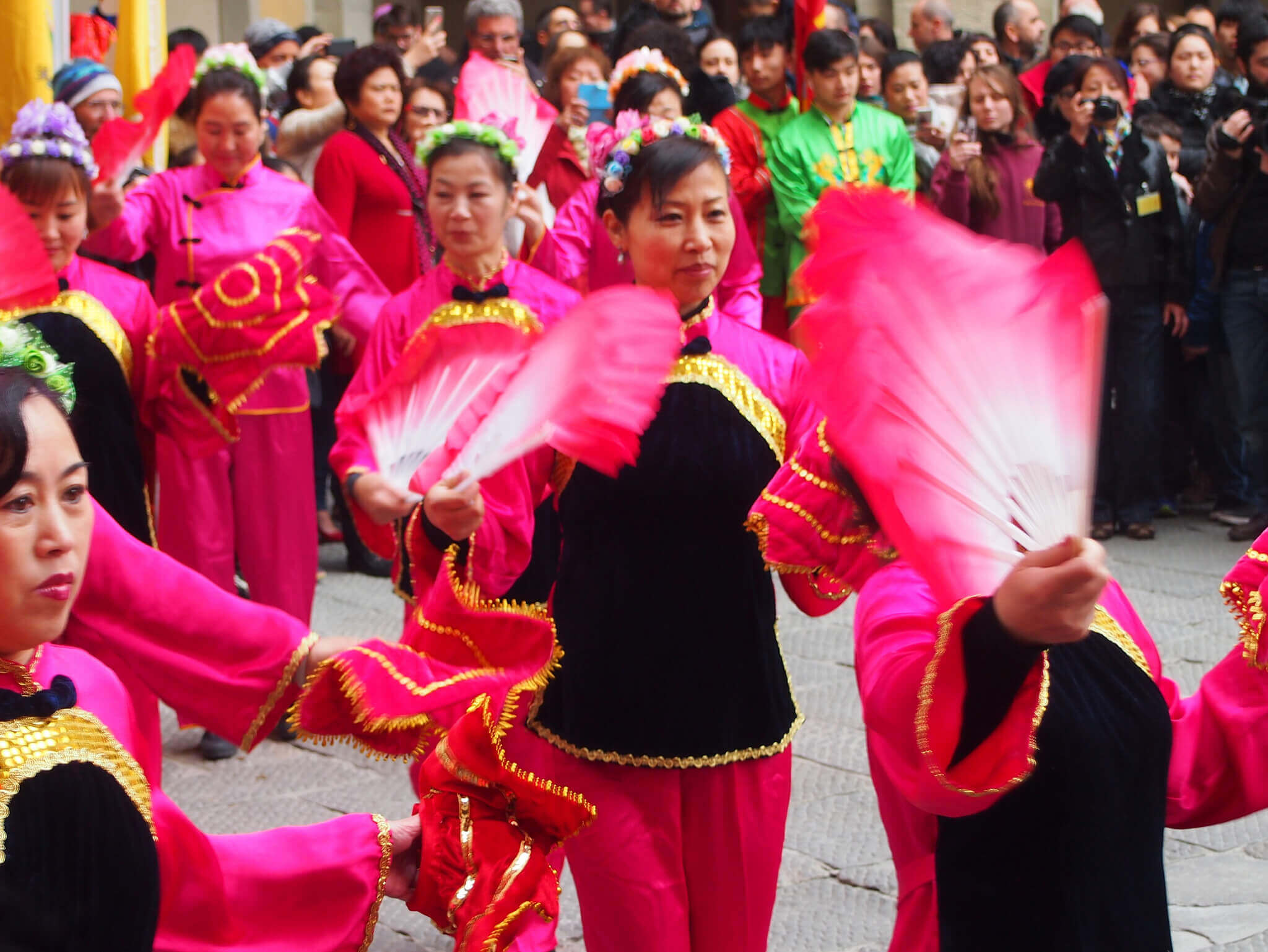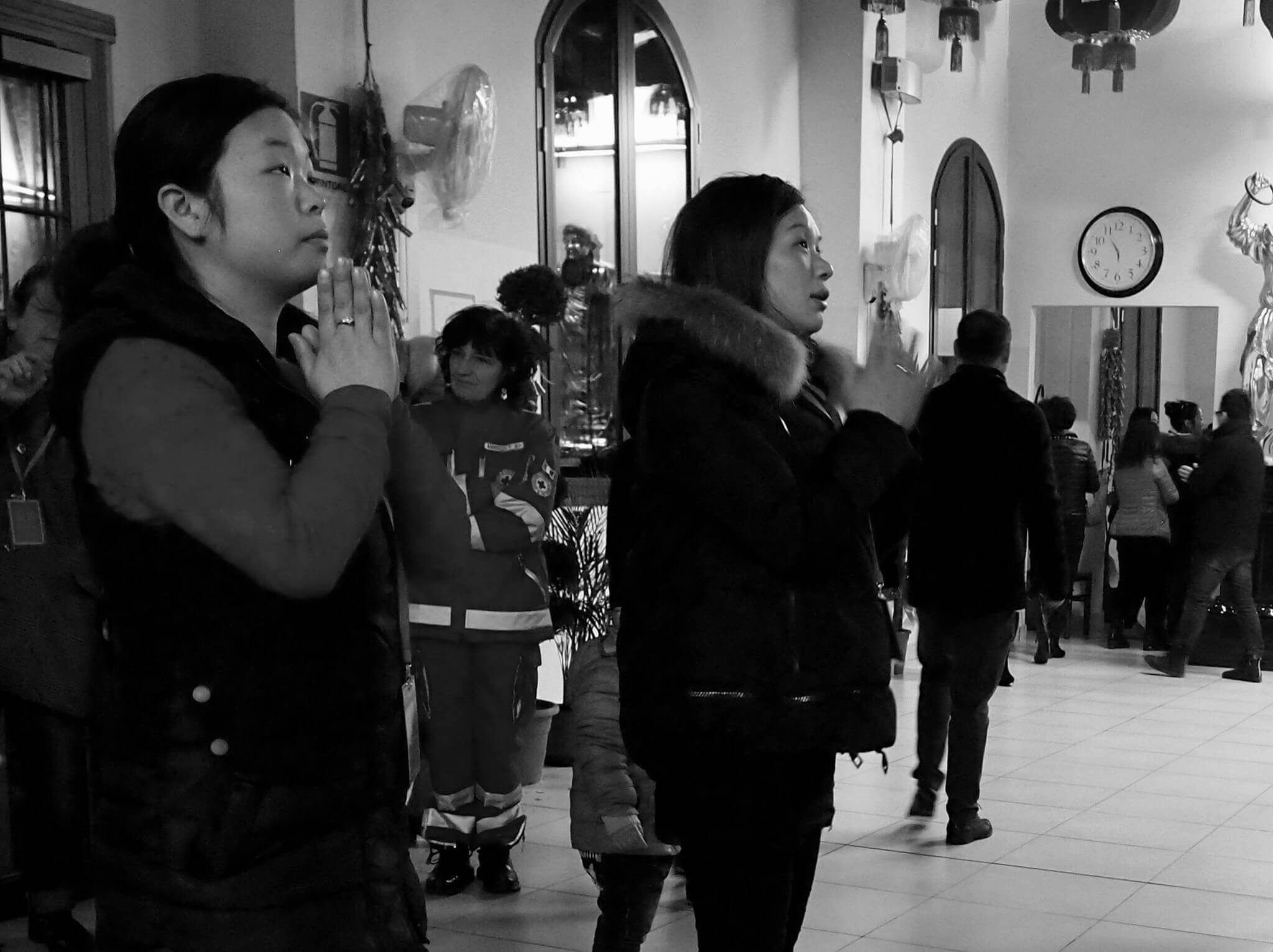In 2015, on a muggy July afternoon, when two Chinese women knocked on the door of the Rome offices of the civil liberties association A Buon Diritto the organisation’s staff and lawyers found themselves facing a problem they had never encountered before: communicating in Mandarin.
The legal office, active in the Italian capital since 2010, provides consultations to hundreds of migrants and asylum seekers from around the world, making use of many volunteers, lawyers and other meditators, who that day did not know how to help. After queuing, the two women, conscious of the linguistic difficulties, nervously took out a mobile phone and suggested using Google translate to explain the reason for their visit.
For us it was the first time people of Chinese origin had asked us for help for their asylum claim.
Intrigued by the request the A Buon Diritto staff decided to attempt a conversation mediated by the phone app, promising to try later with an interpreter in a position to properly facilitate the conversation. ‘We ask for a religious madhouse’, said the phone screen which one of the women showed after writing a phrase in her own language.
“It took us some time to decipher what they were saying” explains a member of A Buon Diritto. “Finally we worked out that Google had transformed the word ‘asilo’ [asylum] into ‘manicomio’ [mental asylum] due to a strange crossover via English. It made us laugh because ‘manicomio’ is a word that we almost never use in Italian anymore. For us it was the first time people of Chinese origin had asked us for help for their asylum claim.”
Illegal cults
According to the UN Refugee Agency (UNHCR) the phenomenon of Chinese asylum seekers in Italy is new and significant: from 2010 to 2015 the number increased fivefold. The Italian government’s own data describes a similar phenomenon: in the last two years the number of Chinese asylum seekers has increased by 400 percent. “In absolute terms the number of Chinese asylum seekers is low compared to other nationalities, but the growth is noteworthy” explain A Buon Diritto. “Before July 2015 we were completely ignorant about the phenomenon of Chinese asylum seekers, and what really struck us was the religious motivation.”

The two women belonged to a religious sect in China and escaped the country due to persecution from the Beijing government. They were living in a rented house in Torpignattara, in the suburbs of Rome, together with other Chinese people. They had left their families behind and were very afraid. They didn’t want to involve others in the asylum request, neither as mediators nor as translators, in case someone informed them to the authorities in Beijing.
All of them said they left the country due to religious persecution.
After the first two cases, from September 2015, many people began to arrive to the Rome office with the same problem. “In the end we received around 70 people, mostly women between 20-40, and just one man. All of them said they left the country due to religious persecution and were asking help to present their asylum requests or appeal against denied asylum claims.”

According to A Buon Diritto, which has just published a report on this phenomenon, all the cases exhibit the same characteristics: “they arrive in Italy by plane in the correct way, with a passport and tourist visa. We have never recorded illegal journeys to reach Europe. The majority live in Rome or Milan. In all of the cases the women have paid a large sum of money to obtain the tourist visa from specialised agencies. A few have paid as much as ten thousand euros. All of them describe their need to escape country for religious reasons, for belonging to one of the illegal religious movements in China, one of the fourteen ‘evil cults.’”
From the centre of the Mediterranean: “Freedom of movement as a human right”
Among the most notorious is the Almighty God, founded in 1989 by Zhao Weishan. According to several sources, it is a sect hostile to the Chinese Communist Party, nicknamed by its adherents the ‘Great Red Dragon.’ After 2014 when a few members of the church organised a violent attack in a fast food restaurant in Shandong there was a wave of arrests: over two years 1500 people were arrested, suspected of following the religion.
“Freedom of religion is guaranteed by the Chinese constitution, but sects which deviate from the official religions and are persecuted” say A Buon Diritto. “These women are intercepted by the police when they gather to pray in small groups, put in jail and, according to their rank, subjected to violence. Some have described full blown torture.” This kind of movement is very active in evangelism – in the squares, the streets, the universities – and so it is particularly easy for the police to identify believers and arrest them.
Many of them have left children at home and suffer a great deal.
When they decide to escape, believers don’t inform their family and friends because they fear involving and harming them. Very often they have been in jail and have refused to repent against the will of the Chinese government. “One woman told us she had left behind a 13 year old son behind and that she had departed without even calling him for fear of putting him in danger” say A Buon Diritto. Many of them have left children at home and suffer a great deal.
They arrive in Italy without a network of friends and contacts and before asking for asylum live in rented dorms for 10 to 15 euros a day working as assistants in the Chinese shops or as cleaners. “In Italy, especially in Rome, the women meet and continue to pray together, some of them have come close to the Waldensian church.” In 2015 Milan too recorded an increase in Chinese asylum seekers, in part because during the Expo it was easier to get a tourist or working visa. Many also turned to charity organisations like Casa della carità and Naga.
Little hope
In the end the two Chinese women that first knocked on the door of the Roman office did not obtain asylum and have since asked help from the same operators of the association to present their appeal to the courts.
The refusal rate for asylum is very high because the testimonies are seen as unbelievable.
“Two years on from the discovery of this phenomenon we continue to help the Chinese asylum seekers, but many come back to us having received rejections from regional authorities” explain A Buon Diritto. The refusal rate for asylum is very high because in the eyes of the authorities the testimonies are unbelievable or fragmentary. “Often it is considered contradictory that the women have held on to their own travel and identity documents but have not arrived illegally in the country” says a member of the legal team.
“The visa and passport are not obtained through the usual procedure, but through informal networks and ad hoc travel agencies that ask for extortionate fees” they continue. “Beyond this, many asylum seekers are scared to explain their religion during the interview with the regional authorities, or tell the details of their stories.” Added to the difficulty of translation and lack of general information on the situation of religious persecution in China, one can see why these women find it immensely difficult to obtain a basic form of protection.
![Political Critique [DISCONTINUED]](http://politicalcritique.org/wp-content/uploads/2015/09/Political-Critique-LOGO.png)
![Political Critique [DISCONTINUED]](http://politicalcritique.org/wp-content/uploads/2015/09/Political-Critique-LOGO-2.png)